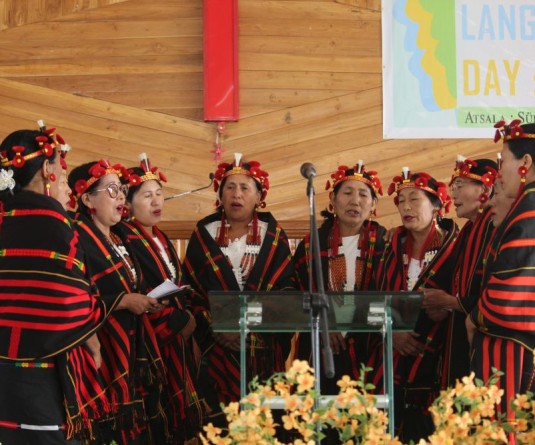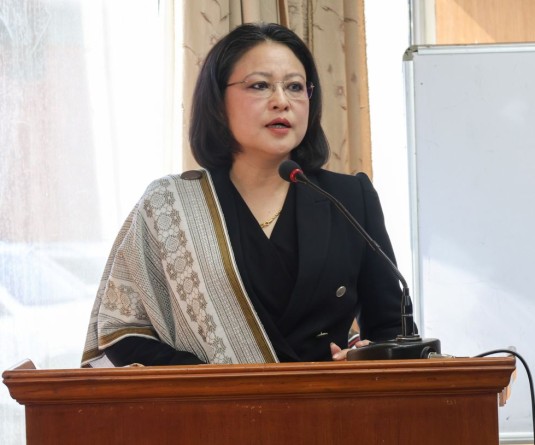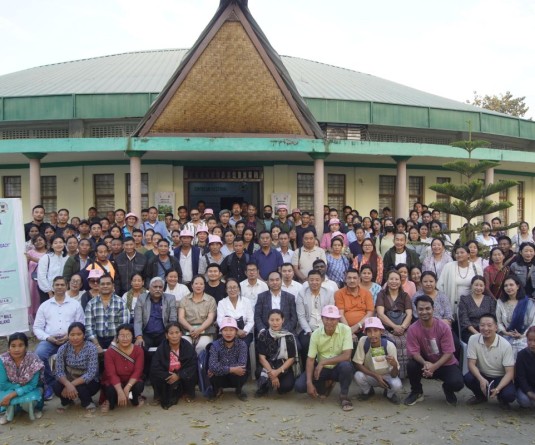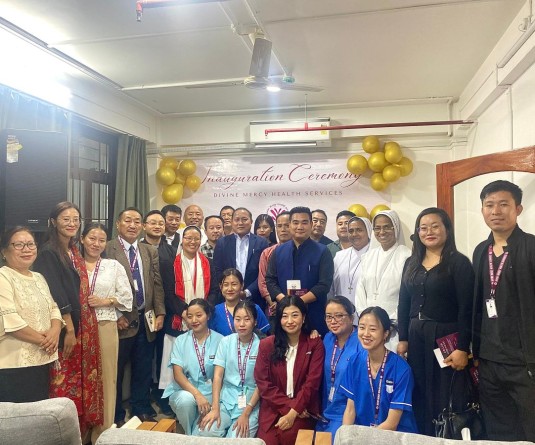
DIMAPUR, SEPTEMBER 28 (MExN): The Nagaland Law Students’ Federation (NLSF) has called on the Nagaland Government to address pressing concerns regarding the Inner Line Pass (ILP) system, which has been proposed to be divided into three categories.
In a press statement, NLSF president, T Tohuka Achumi and vice-president Tiakumzuk pointed out that the Bengal Eastern Frontier Regulation (BEFR) of 1873, which introduced the ILP, was primarily aimed at protecting the commercial interests of the British while safeguarding the culture and identity of indigenous tribes.
It said nowhere, in the Regulation 5 of 1873 (BEFR 1873) the word ‘Permit’ was mentioned but the word ‘Pass’ was only mentioned and there is a complete difference between the word pass and permit.
As globalization progresses, the NLSF said it would not like to insist strictly on the terminology, but firmly opposed the government’s decision to provide special privileges under the ILP to two categories of individuals—those who settled in Nagaland prior to 1963 and between 1963 and 1979.
It argued that if the ILP were enforced as per the original BEFR, the issue of Nagaland's statehood established in 1963 would be irrelevant. However, it supported the use of 1963 as the cutoff year for the ILP for the sake of state coordination and development.
The Federation also expressed confusion regarding the second cutoff year of 1979. It stated that while Dimapur was not designated as a tribal area until then, it has always been an integral part of Nagaland. It, therefore, asserted that it is very much the responsibility of the State Government to safeguard and protect the people and the land without the need of any pressure groups pressurizing it for such noble duty.
Stating that the indigenous citizens of Nagaland, being a smaller tribal population compared to those from neighboring states and countries, are at a high risk of being overwhelmed if the state government does not implement proper mechanisms, the NLSF cited the situation in Tripura as a cautionary example for decisions regarding the ILP.
Warning that the ongoing influx of illegal Bangladeshi immigrants (IBIs) could lead to a significant demographic shift if not addressed, the Federation called upon the government to reconsider its Cabinet decision from September 11, 2024, and to establish 1963 as the sole cutoff year for ILP issuance.
Additionally, the NLSF urged the government to establish strict criteria for ILP issuance based on tourism, business potential, and skilled labor requirements, emphasizing a structured approach with time limits.
Economic impact of weekly bazaar
The Federation also raised concerns about the weekly bazaar system, which it believed has become a major source of sustenance for illegal immigrants in the region. It urged the government to evaluate the situation in Dimapur, Chümoukedima, Niuland, and surrounding districts, stressing that unchecked bazaars could lead to economic catastrophe for local citizens.
While some may disagree with their perspective, the NLSF warned of potential economic disaster if the weekly bazaars are not properly regulated, as many are reportedly controlled by IBIs.
Towards this, the NLSF has requested the Nagaland Government to address these matters with dedication and seriousness purely for the welfare of the State of Nagaland and its people.






